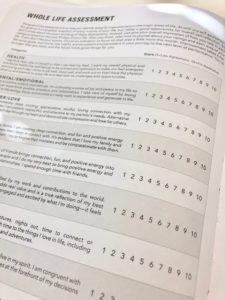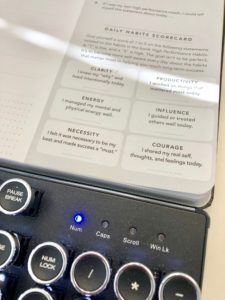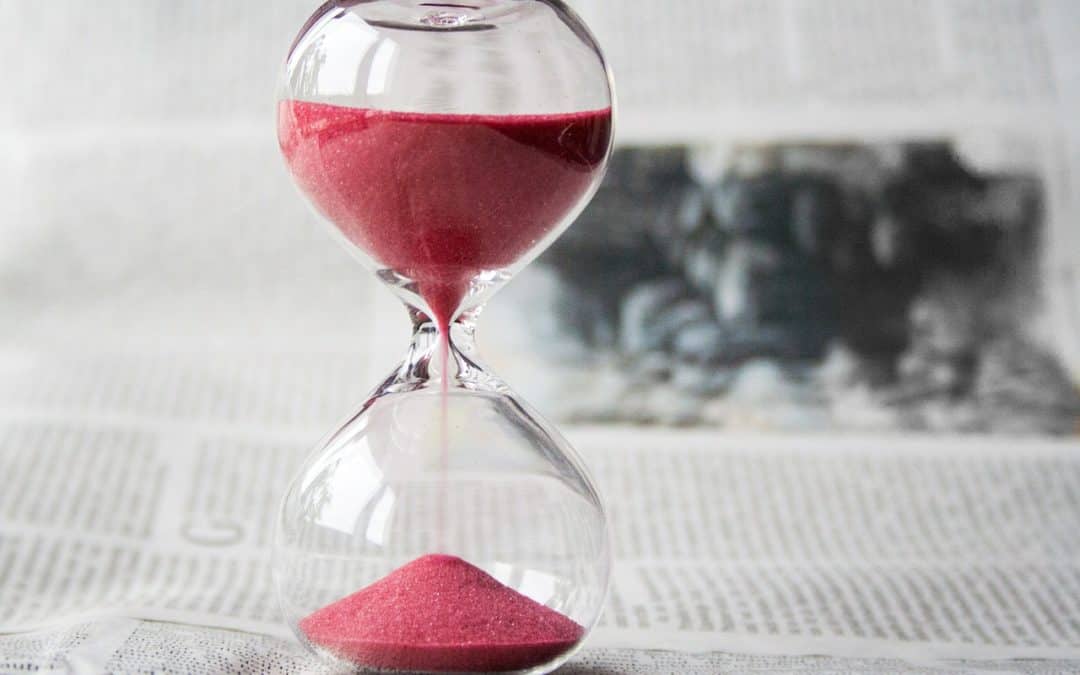I always love this time of year because people start reflecting back on their year. For me, I like to see progress. In order to see progress, I have to have a benchmark to see how far I’ve come. January 1 to December 31 is traditional but certainly even shorter benchmarks are helpful.
I walk daily. It’s good for me and my puppy. Mostly, I do it as a way of winding down after a busy day. And as a writer, I sit a lot. But on Dec. 31 when I look at my health data on my iPhone, it shows me that I averaged 4 miles a day for 2018. That’s 1460 miles. Not bad considering my foot injury this spring. So from the annual perspective, it’s a helpful measure. On the weekly basis, I like to see if I can walk at least the same amount of steps, if not more.
I’m not alone. I see people who set impressive reading goals on Goodreads, and aim for 100 books a year, or a book a day or whatever goal it is. And then as the year goes on, they knock it out. It’s pretty gratifying.
The thing about measuring progress is that you need two things:
- A starting point
- A measuring device
So for my steps, I’ve been a pretty serious Fitbit user for a long time. According to the Fitbit app, I’ve earned the Russian Railway badge, which is 5,772 miles tracked with Fitbit so far. Also, the “Cleats” which is 40k steps in a single day, and the one I’m most proud of the Stadium badge which is 150 floors in a single day.
I’ve broken or lost a few of the small clip on versions. Finally I took to using the Fitbit Blaze watch (and even bought one for my mom). It was nice but kept getting caught on the sleeves of my jackets. So as a way to continue measuring my steps but without the drama for 2019, I’ve gone to the Fitbit HR, perfect size, low profile and holds a charge for several days.
That’s all very well and good for something concrete like steps or words written for tracking. But how do we measure progress in life?
The Pomodoro method has been really helpful for me on tracking shorter chunks of time (wrote about it here) but I was curious to see what else I could try. I love planners and journals and am constantly searching for the “perfect” one. Well, I don’t know that I would call it perfect, but the latest one I’ve bought is certainly a winner for helping me measure progress in life. It’s the The High Performance Planner. I’m also trying not to be bitter about the fact that I paid $24.99 for it and it’s now on sale for $14.99. Run, don’t walk to buy your copy now if you are a planner lover like me!
Ok, so the things that I love about this High Performance Planner. It’s 8.5 x11. That’s right, a full sheet of paper. So no, it’s not meant to be carried around like a pocket calendar. It’s something I can do in the morning and leave on my desk. There is an evening reflection as well but I find it’s better for me when I do it at the start of my morning planning session.
But that’s a minor thing. The value in this HPP is that it asks the hard questions.

High Performance Habits Whole Life Assessment
The opening pages have a Whole Life Assessment and a High Performance Habits Assessment (to understand the lingo, you can take the free quiz). You have to score yourself on your Health, Mental and Emotional state, Partner/Love connection, Family, Friends, Mission, Experiences, Spirit, Finances and Learning.
I found this scoring to be extremely uncomfortable. But on the other hand, if I don’t mark my starting place, how will I know at the end of year that I have made progress?
I have to start where I am.
On the daily pages, the HPP also has you score your habits on a scale of 1 to 5. “I managed my mental and physical energy well.”

High Performance Habits Daily Scorecard
Basically, I think this HPP is like the Fitbit for measuring how you feel about your own life. And like the Pomodoro method, taking something abstract (like time) and making it concrete.
This HPP is a low commitment. It’s inexpensive and it’s 60 days (undated) for you to try.
An Audiobook Recommendation:
I’ve been listening to an interesting book (but rather dry narration) called The Practicing Mind: Developing Focus and Discipline in Your Life Master Any Skill or Challenge by Learning to Love the Process. Thankfully it’s a rather short book. I bought it because I want to work on maintaining my focus for longer periods of time.
Interestingly, the book is more like a meditative approach for daily living. The lessons in it have been helpful for me in unexpected ways. Here are the takeaways that I’ve appreciated from the book so far.
- Just like learning a sport or a musical instrument, life skills like budgeting and time management take deliberate practice.
- Frustration and stress comes from not being in the present but instead worrying about future consequences and wishing to be elsewhere.
- To calm the mind from that stress, treat the activity the way you did when you were a beginner and it was all new to you.
- Alternatively, give yourself some emotional distance from the activity by pretending you are an instructor observing the student and noting areas for improvement.
I tried it yesterday. When I took my hour long walk in the afternoon, I didn’t listen to a podcast or an audiobook. Instead, I just spent time with my dog and enjoyed the environment. It had been so long since I had done just “one thing at a time” since I’m used to trying to squeeze a little more from each hour. But it was extremely relaxing and reminded me of when I trained for my first marathon. No music, no distractions. Just me in my body trying to get the miles in.




